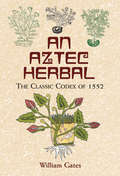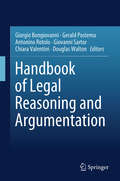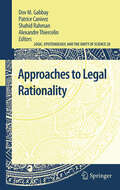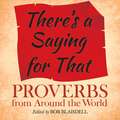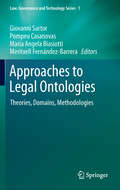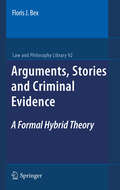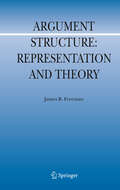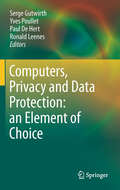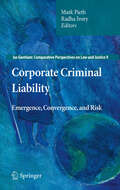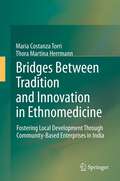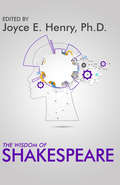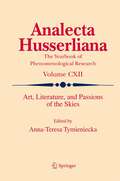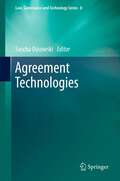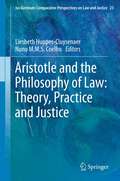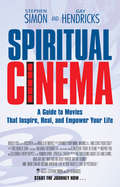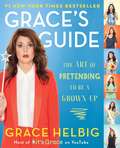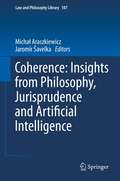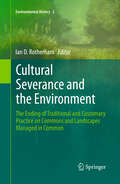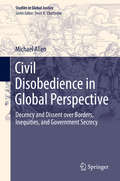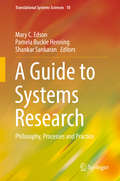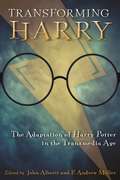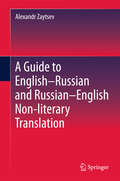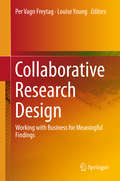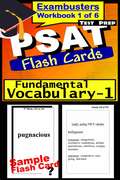- Table View
- List View
An Aztec Herbal: The Classic Codex of 1552 (Native American)
by William GatesOriginally written in the Aztec language, this 16th-century codex was the first herbal and medical text compiled in the New World. It contains ancient remedies for myriad ailments -- boils, hair loss, cataracts, insomnia hiccoughs, and gout, to name a few. Analytical Index to Plants. New Introduction. Over 180 black-and-white and 38 color illustrations.
Handbook of Legal Reasoning and Argumentation
by Giorgio Bongiovanni Gerald Postema Antonino Rotolo Giovanni Sartor Chiara Valentini Douglas WaltonThis handbook addresses legal reasoning and argumentation from a logical, philosophical and legal perspective. The main forms of legal reasoning and argumentation are covered in an exhaustive and critical fashion, and are analysed in connection with more general types (and problems) of reasoning. Accordingly, the subject matter of the handbook divides in three parts. The first one introduces and discusses the basic concepts of practical reasoning. The second one discusses the general structures and procedures of reasoning and argumentation that are relevant to legal discourse. The third one looks at their instantiations and developments of these aspects of argumentation as they are put to work in the law, in different areas and applications of legal reasoning.
Approaches to Legal Rationality (Logic, Epistemology, and the Unity of Science #20)
by Dov M. Gabbay Patrice Canivez Shahid Rahman Alexandre ThiercelinLegal theory, political sciences, sociology, philosophy, logic, artificial intelligence: there are many approaches to legal argumentation. Each of them provides specific insights into highly complex phenomena. Different disciplines, but also different traditions in disciplines (e.g. analytical and continental traditions in philosophy) find here a rare occasion to meet. The present book contains contributions, both historical and thematic, from leading researchers in several of the most important approaches to legal rationality. One of the main issues is the relation between logic and law: the way logic is actually used in law, but also the way logic can make law explicit. An outstanding group of philosophers, logicians and jurists try to meet this issue. The book is more than a collection of papers. However different their respective conceptual tools may be, the authors share a common conception: legal argumentation is a specific argumentation context.
There's a Saying for That: Proverbs from Around the World
by Bob BlaisdellForbidden fruit is the sweetest, and he who wants to beat a dog is sure to find a stick! This compilation of the best proverbs from around the world -- ancient and modern -- offers concise, time-honored wisdom about love, money, politics, and human nature. A handsome gift-book format makes this volume an ideal present.
Approaches to Legal Ontologies: Theories, Domains, Methodologies (Law, Governance and Technology Series #1)
by Giovanni Sartor Mariangela Biasiotti Meritxell Fernández-Barrera Pompeu CasanovasThe book provides the reader with a unique source regarding the current theoretical landscape in legal ontology engineering as well as on foreseeable future trends for the definition of conceptual structures to enhance the automatic processing and retrieval of legal information in the Semantic Web framework. It will thus interest researchers in the domains of the SW, legal informatics, Artificial Intelligence and law, legal theory and legal philosophy, as well as developers of e-government applications based on the intelligent management of legal or public information to provide both back-office and front-office support.
Arguments, Stories and Criminal Evidence: A Formal Hybrid Theory (Law and Philosophy Library #92)
by Floris J. BexIn this book a theory of reasoning with evidence in the context of criminal cases is developed. The main subject of this study is not the law of evidence but rather the rational process of proof, which involves constructing, testing and justifying scenarios about what happened using evidence and commonsense knowledge. A central theme in the book is the analysis of ones reasoning, so that complex patterns are made more explicit and clear. This analysis uses stories about what happened and arguments to anchor these stories in evidence. Thus the argumentative and the narrative approaches from the research in legal philosophy and legal psychology are combined. Because the book describes its subjects in both an informal and a formal style, it is relevant for scholars in legal philosophy, AI, logic and argumentation theory. The book can also appeal to practitioners in the investigative and legal professions, who are interested in the ways in which they can and should reason with evidence.
Argument Structure: Representation and Theory (Argumentation Library #18)
by James B. FreemanThis monograph first presents a method of diagramming argument macrostructure, synthesizing the standard circle and arrow approach with the Toulmin model. A theoretical justification of this method through a dialectical understanding of argument, a critical examination of Toulmin on warrants, a thorough discussion of the linked-convergent distinction, and an account of the proper reconstruction of enthymemes follows.
Computers, Privacy and Data Protection: An Element Of Choice
by Paul De Hert Yves Poullet Serge Gutwirth Ronald LeenesThis timely interdisciplinary work on current developments in ICT and privacy/data protection, coincides as it does with the rethinking of the Data Protection Directive, the contentious debates on data sharing with the USA (SWIFT, PNR) and the judicial and political resistance against data retention. The authors of the contributions focus on particular and pertinent issues from the perspective of their different disciplines which range from the legal through sociology, surveillance studies and technology assessment, to computer sciences. Such issues include cutting-edge developments in the field of cloud computing, ambient intelligence and PETs; data retention, PNR-agreements, property in personal data and the right to personal identity; electronic road tolling, HIV-related information, criminal records and teenager's online conduct, to name but a few.
Corporate Criminal Liability: Emergence, Convergence, and Risk (Ius Gentium: Comparative Perspectives on Law and Justice #9)
by Mark Pieth Radha IvoryWith industrialization and globalization, corporations acquired the capacity to influence social life for good or for ill. Yet, corporations are not traditional objects of criminal law. Justified by notions of personal moral guilt, criminal norms have been judged inapplicable to fictional persons, who 'think' and 'act' through human beings. The expansion of new corporate criminal liability (CCL) laws since the mid-1990s challenges this assumption. Our volume surveys current practice on CCL in 15 civil and common law jurisdictions, exploring the legal conditions for liability, the principles and options for sanctioning, and the procedures for investigating, charging and trying corporate offenders. It considers whether municipal CCL laws are converging around the notion of 'corporate culture', and, in any case, the implications of CCL for those charged with keeping corporations, and other legal entities, out of trouble.
Bridges Between Tradition and Innovation in Ethnomedicine: Fostering Local Development Through Community-Based Enterprises in India
by Thora Martina Herrmann Maria Costanza TorriCommunity-based enterprises are the result of a process in which the community acts entrepreneurially to create and operate a new enterprise embedded in its existing social structure and network. This book argues that community-based enterprise could represent a strategy for fostering sustainable local development while at the same time maintaining traditional knowledge in ethnomedicine and conserving the local ecosystems.
Characterizing the Robustness of Science: After the Practice Turn in Philosophy of Science (Boston Studies in the Philosophy and History of Science #292)
by William Wimsatt Emiliano Trizio Léna Soler Thomas NicklesMature sciences have been long been characterized in terms of the "successfulness", "reliability" or "trustworthiness" of their theoretical, experimental or technical accomplishments. Today many philosophers of science talk of "robustness", often without specifying in a precise way the meaning of this term. This lack of clarity is the cause of frequent misunderstandings, since all these notions, and that of robustness in particular, are connected to fundamental issues, which concern nothing less than the very nature of science and its specificity with respect to other human practices, the nature of rationality and of scientific progress; and science's claim to be a truth-conducive activity. This book offers for the first time a comprehensive analysis of the problem of robustness, and in general, that of the reliability of science, based on several detailed case studies and on philosophical essays inspired by the so-called practical turn in philosophy of science.
The Wisdom of Shakespeare
by Joyce HenryIf the transparent pictures of a cinematograph roll were found clipped apart in a medley of separate pictures, the test of their reunion in a reconstituted film would be the air of life in the moving picture thrown from it on the shimmering screen. <P><P>And so it is with those elements of a living portrait to be found in the extra-dramatic bits of Shakespeare's work. This statement has been made before; has been supported; has been denied. The present writer says merely Read and judge.
Art, Literature, and Passions of the Skies: Art, Literature, And Passions Of The Skies (Analecta Husserliana #112)
by Anna Teresa TymienieckaFlashes of lightning, resounding thunder, gloomy fog, brilliant sunshine...these are the life manifestations of the skies. The concrete visceral experiences that living under those skies stir within us are the ground for individual impulses, emotions, sentiments that in their interaction generate their own ever-changing clouds. While our intellect concentrates on the discovery of our cosmic position, on the architecture of the universe, our imagination is informed by the gloomy vapors, the glimmers of fleeting light, and the glory of the skies. Reconnoitering from the soil of human life and striving towards the infinite, the elan of imagination gets caught up in the clouds of the skies. There in that dimness, sensory receptivity, dispositions, emotions, passionate strivings, yearnings, elevations gather and propagate. From the "Passions of the Skies" spring innermost intuitions that nourish literature and the arts.
Agreement Technologies: Second International Conference, At 2013, Beijing, China, August 1-2, 2013. Proceedings (Law, Governance and Technology Series #8)
by Sascha OssowskiMore and more transactions, whether in business or related to leisure activities, are mediated automatically by computers and computer networks, and this trend is having a significant impact on the conception and design of new computer applications. The next generation of these applications will be based on software agents to which increasingly complex tasks can be delegated, and which interact with each other in sophisticated ways so as to forge agreements in the interest of their human users. The wide variety of technologies supporting this vision is the subject of this volume. It summarises the European Cooperation in Science and Technology (COST) Action project on Agreement Technologies (AT), during which approximately 200 researchers from 25 European countries, along with eight institutions from non-COST countries, cooperated as part of a number of working groups. The book is the first to provide a comprehensive overview of the emerging field of Agreement Technologies, written and coordinated by the leading researchers in the field. The results set out here are due for wide dissemination beyond the computer technology sector, involving law and social science as well.
Aristotle and The Philosophy of Law: Theory, Practice And Justice (Ius Gentium: Comparative Perspectives on Law and Justice #23)
by Nuno M.M.S. Coelho Liesbeth Huppes-CluysenaerThe book presents a new focus on the legal philosophical texts of Aristotle, which offers a much richer frame for the understanding of practical thought, legal reasoning and political experience. It allows understanding how human beings interact in a complex world, and how extensive the complexity is which results from humans' own power of self-construction and autonomy. The Aristotelian approach recognizes the limits of rationality and the inevitable and constitutive contingency in Law. All this offers a helpful instrument to understand the changes globalisation imposes to legal experience today. The contributions in this collection do not merely pay attention to private virtues, but focus primarily on public virtues. They deal with the fact that law is dependent on political power and that a person can never be sure about the facts of a case or about the right way to act. They explore the assumption that a detailed knowledge of Aristotle's epistemology is necessary, because of the direct connection between Enlightened reasoning and legal positivism. They pay attention to the concept of proportionality, which can be seen as a precondition to discuss liberalism.
Spiritual Cinema: A Guide To Movies That Inspire, Heal, And Empower Your Life
by Stephen Simon Gay HendricksWould you like to discover a new world of movies that expands your mind, warms your heart, and stirs you soul? If so, this book is sure to become a valuable resource for you.
Grace's Guide: The Art of Pretending to Be a Grown-up
by Grace Helbig"One of the sharpest, funniest voices on YouTube" (Forbes), comedian Grace Helbig offers an irreverent and illustrated guide to life for anyone faced with the challenge of growing up.Face it--being a young adult in the digital era is one of the hardest things to be. Well, maybe there are harder things in life...but being an adult is difficult! So Grace Helbig has written a guide that's perfect for anyone who is faced with the daunting task of becoming an adult. Infused with her trademark saucy, sweet, and funny voice, Grace's Guide is a tongue-in-cheek handbook for millennials, encompassing everything a young or new (or regular or old) adult needs to know, from surviving a breakup to recovering from a hangover. Beautifully illustrated and full-color, Grace's Guide features interactive elements and exclusive stories from Grace's own misadventures--like losing her virginity solely because her date took her to a Macaroni Grill--and many other hilarious lessons she learned the hard way. Amusing and unexpectedly educational, this refreshing and colorful guide proves that becoming an adult doesn't necessarily mean you have to grow up.
Coherence: Insights From Philosophy, Jurisprudence And Artificial Intelligence (Law and Philosophy Library #107)
by Michał Araszkiewicz Jaromír ŠavelkaThis book is a thorough treatise concerned with coherence and its significance in legal reasoning. The individual chapters present the topic from the general philosophical perspective, the perspective of legal-theory as well as the viewpoint of cognitive sciences and the research on artificial intelligence and law. As it has turned out the interchange of knowledge among these disciplines is very fruitful for each of them, providing mutual inspiration and increasing understanding of a given topic. This book is a unique resource for anyone interested in the concept of coherence and the role it plays in reasoning. As this book captures important contemporary issues concerning the ongoing discussion on coherence and law, those interested in legal reasoning should find it particularly helpful. By presenting such a broad scope of views and methods on approaching the issue of coherence we hope to promote the general interest in the topic as well as the academic research that centers around coherence and law.
Cultural Severance and the Environment: The Ending of Traditional and Customary Practice on Commons and Landscapes Managed in Common (Environmental History #2)
by Ian D. RotherhamThis major book explores commons, lands and rights of usage in common, traditional and customary practices, and the cultural nature of 'landscapes'. Importantly, it addresses now critical matters of 'cultural severance' and largely unrecognized impacts on biodiversity and human societies, and implications for conservation, sustainability, and local economies. The book takes major case studies and perspectives from around the world, to address contemporary issues and challenges from historical and ecological perspectives. The book developed from major international conferences and collaborations over around fifteen years, culminating 'The End of Tradition?' in Sheffield, UK, 2010. The chapters are from individuals who are both academic researchers and practitioners. These ideas are now influencing bodies like the EU, UNESCO, and FAO, with recognition by major organisations and stakeholders, of the critical state of the environment consequent on cultural severance.
Civil Disobedience in Global Perspective: Decency and Dissent over Borders, Inequities, and Government Secrecy (Studies in Global Justice #16)
by Michael AllenThis book explores a hitherto unexamined possibility of justifiable disobedience opened up by John Rawls' Law of Peoples. This is the possibility of disobedience justified by appeal to standards of decency that are shared by peoples who do not otherwise share commitments to the same principles of justice, and whose societies are organized according to very different basic social institutions. Justified by appeal to shared decency standards, disobedience by diverse state and non-state actors indeed challenge injustices in the international system of states. The book considers three case studies: disobedience by the undocumented, disobedient challenges to global economic inequities, and the disobedient disclosure of government secrets. It proposes a substantial analytical redefinition of civil disobedience in a global perspective, identifying the creation of global solidarity relations as its goal. Michael Allen breaks new ground in our understanding of global justice. Traditional views, such as those of Rawls, see justice as a matter of recognizing the moral status of all free and equal person as citizens in a state. Allen argues that this fails to see things from the global perspective. From this perspective disobedience is not merely a matter of social cooperation. Rather, it is a matter of self determination that guarantees the invulnerability of different types of persons and peoples to domination. This makes the disobedience by the undocumented justified, based on the idea that all persons are moral equals, so that all sovereign peoples need to reject dominating forms of social organization for all persons, and not just their own citizens. In an age of mass movements of people, Allen gives us a strong reason to change our practices in treating the undocumented. James Bohman, St Louis University, Danforth Chair in the Humanities This monograph is an important contribution to our thinking on civil disobedience and practices of dissent in a globalized world. This is an era where non-violent social movements have had a significant role in challenging the abuse of power in contexts as diverse, yet interrelated as the Arab Spring protests and the Occupy protests. Moreover, while protests such as these speak to a local political horizon, they also have a global footprint, catalyzing a transnational dialogue about global justice, political strategy and cosmopolitan solidarity. Speaking directly to such complexities, Allen makes a compelling case for a global perspective regarding civil disobedience. Anyone interested in how the dynamics of non-violent protest have shaped and reshaped the landscape for democratic engagement in a globalized world will find this book rewarding and insightful. Vasuki Nesiah, New York University
A Guide to Systems Research: Philosophy, Processes and Practice (Translational Systems Sciences #10)
by Mary C. Edson Pamela Buckle Henning Shankar SankaranThis guide is designed for systems researchers - emerging and seasoned - searching for holistic approaches of inquiry into complexity, which the Systems Sciences provide. The authors share insight into the foundations of research that are not only systematic in terms of rigor, but systemic in perspective, analysis, design, development, implementation, reporting, and evaluation. This guide also explores researcher competencies necessary to conduct sound systems research. Researchers using this guide will gain understanding of what distinguishes systems research from other types of research and why it is important in research today.
Transforming Harry: The Adaptation of Harry Potter in the Transmedia Age (Contemporary Approaches to Film and Media Series)
by Kelly Turner John Alberti Vera Cuntz-Leng P. Andrew Miller Andrew Howe Cassandra Bausman Maria Dicieanu Katharine McCain Michelle Markey Butler Liza Potts Emily DallaireTransforming Harry: The Adaptation of Harry Potter in the Transmedia Ageis an edited volume of eight essays that look at how the cinematic versions of the seven Harry Potter novels represent an unprecedented cultural event in the history of cinematic adaptation. The movie version of the first Harry Potter book, Harry Potter and the Sorcerer’s Stone, premiered in 2001, in between publication of the fourth and fifth books of this global literary phenomenon. As a result, the production and reception of both novel and movie series became intertwined with one another, creating a fanbase who accessed the series first through the books, first through the movies, and in various other combinations. John Alberti and P. Andrew Miller have gathered scholars to explore and examine the cultural, political, aesthetic, and pedagogical dimensions of this pop culture phenomenon and how it has changed the reception of both the films and books. Divided into two sections, the volume addresses both the fidelity of adaptation and the transmedia adaptations that have evolved around the creation of the books and movies. In her essay, Vera Cuntz-Leng draws on feminist film theory to explore the gaze politics and male objectification operating in the Harry Potter movies. Cassandra Bausman contends that screenwriter Steve Klove’s revision of the end of the film version of Deathly Hallows, Part II offers a more politically and ethically satisfying conclusion to the Harry Potter saga than the ending of the Rowling novel. Michelle Markey Butler’s "Harry Potter and the Surprising Venue of Literary Critiques" argues that the fan-generated memes work as a kind of popular literary analysis in three particular areas: the roles of female characters, the comparative analysis of books and films, and the comparative analysis of the Harry Potter series with other works of fantasy. While the primary focus of the collection is an academic audience, it will appeal to a broad range of readers. Within the academic community, Transforming Harry will be of interest to scholars and teachers in a number of disciplines, including film and media studies and English. Beyond the classroom, the Harry Potter series clearly enjoys a large and devoted global fan community, and this collection will be of interest to serious fans.
A Guide to English-Russian and Russian-English Non-literary Translation
by Alexandr ZaytsevLying at the intersection of translatology, cognitive science and linguistics, this brief provides a comprehensive framework for studying, investigating and teaching English-Russian/Russian-English non-literary translation. It provides a holistic perspective on the process of non-literary translation, illustrating each of its steps with carefully analyzed real-life examples. Readers will learn how to choose and process multidimensional attention units in original texts by activating different types of knowledge, as well as how to effectively devise target-language matches for them using various translation techniques. It is rounded out with handy and feasible recommendations on the structure and content of an undergraduate course in translation. The abundance of examples makes it suitable not only for use in the classroom, but also for independent study.
Collaborative Research Design: Working with Business for Meaningful Findings
by Louise Young Per Vagn FreytagThis book articulates and interconnects a range of research methods for the investigation of business management processes. It introduces new directions that both recognise the business community as stakeholders in the research process and seek to include them in that process. The book presents a range of contemporary research methods with particular focus on those that allow insights into business managers' thoughts and behaviours. It includes fresh views on traditional research designs, for example new approaches to using literature reviews, experiments, interviews and observation studies. It also considers cutting-edge research methods, such as the use of vignettes, workshops, improvisation and theatre, as well as computer-based simulation. In addition to discussing new approaches to data capture and data generation, it presents new methods of data analysis by considering various forms of models and modelling, new forms of computer-aided text analysis and innovative approaches to data display. Finally, the book provides a link between the philosophical underpinnings of research and the different research methods presented. This is often neglected but undertaking the knowledge-generating journey that is research includes having a view on reality and marrying this to beliefs about how the reality to be investigated can be best expedited.
PSAT Test Prep Flash Cards: Fundamental Vocabulary - 1 (Exambusters PSAT Workbook #1 of 6)
by Ace Inc.<P><P><i>Advisory: Bookshare has learned that this book offers only partial accessibility. We have kept it in the collection because it is useful for some of our members. Benetech is actively working on projects to improve accessibility issues such as these.</i><P><P> 300 basic words every high school freshman should know. Includes part of speech, pronunciation, succinct, easy-to-remember definition, and common synonyms and antonyms.<P><P> <P>EXAMBUSTERS PSAT Prep Workbooks provide comprehensive, fundamental PSAT review--one fact at a time--to prepare students to take practice PSAT tests. Each PSAT study guide focuses on one specific subject area covered on the PSAT exam. From 300 to 600 questions and answers, each volume in the PSAT series is a quick and easy, focused read. Reviewing PSAT flash cards is the first step toward more confident PSAT preparation and ultimately, higher PSAT exam scores!
